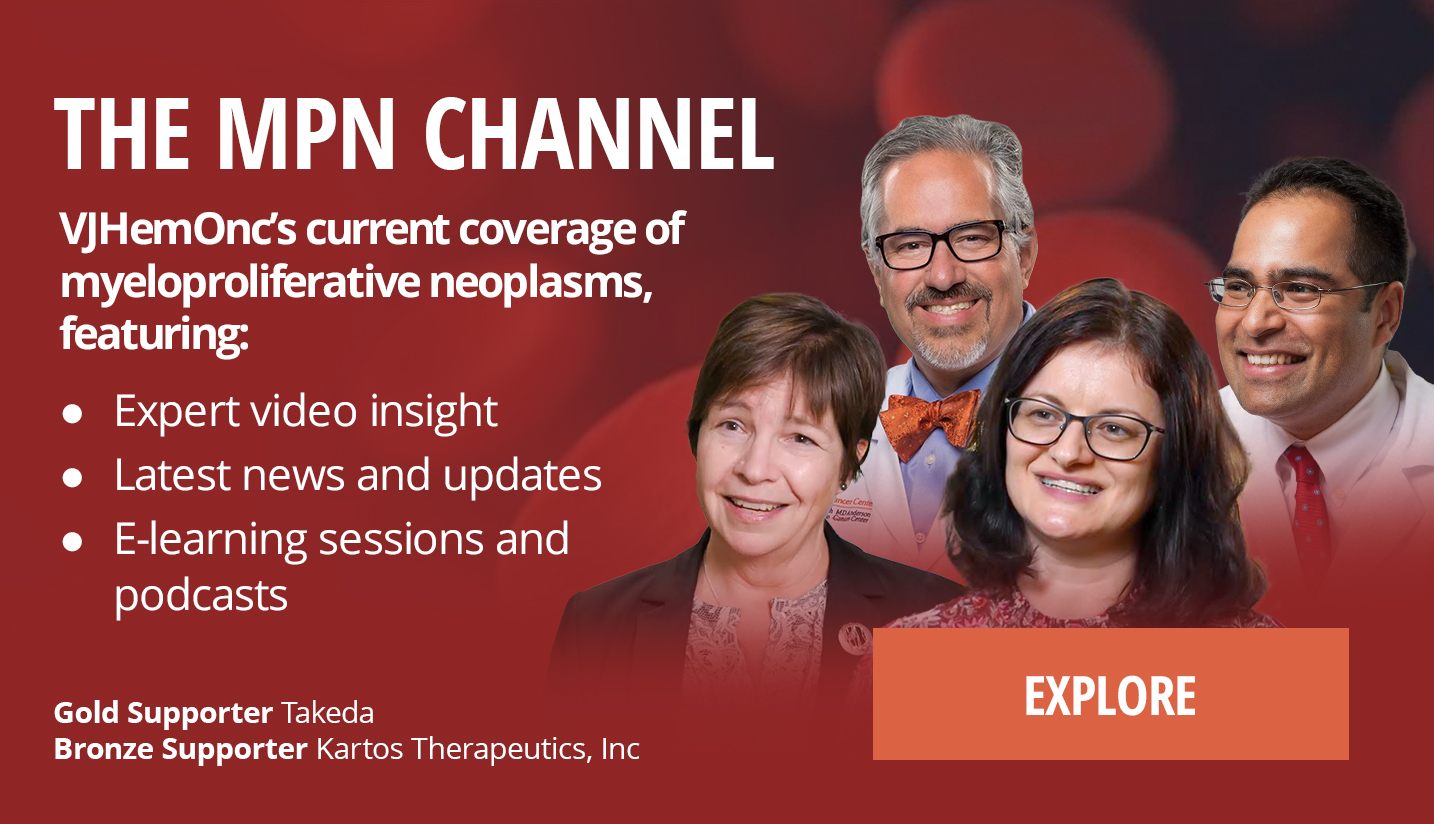There’s been a lot of treatment changes in acute myeloid leukemia, and many of those are what we then utilize for patients with AP/BP. Unfortunately, we haven’t really moved the needle very much in terms of outcomes. So historical outcomes for accelerated/blast-phase MPNs are somewhere in the neighborhood of three to six months median overall survival. When we looked at a modern cohort of patients, so 2017 to modern day, with these newer AML therapies, median overall survival is still only about 10 months...
There’s been a lot of treatment changes in acute myeloid leukemia, and many of those are what we then utilize for patients with AP/BP. Unfortunately, we haven’t really moved the needle very much in terms of outcomes. So historical outcomes for accelerated/blast-phase MPNs are somewhere in the neighborhood of three to six months median overall survival. When we looked at a modern cohort of patients, so 2017 to modern day, with these newer AML therapies, median overall survival is still only about 10 months. So while we kind of leverage therapies available to us from the AML population, those therapies aren’t really moving the needle in the way that we’d like for accelerated/blast-phase disease.
So I think there’s been a lot of preclinical work done identifying potential therapeutic classes of drugs, such as BET inhibition. We’ve done some retrospective work looking at IDH inhibition that we’re now looking at prospectively. The target that I’m most excited about is LSD1. So there’s quite a bit of clinical data on the role of LSD1 inhibition in chronic phase MPNs with the LSD1 inhibitor bomedemstat. We are leading a study in collaboration with the NCI CTEP program looking at the LSD1 inhibitor iadademstat. So hypomethylating agent plus or minus iadademstat. This combination has shown great benefit in AML, and now we’re looking to see if it translates into accelerate/blast-phase MPNs. And we also want to do this in a randomized fashion to really elucidate, is there a benefit beyond the HMA part of therapy? And this will be the first study that’s actually looking at therapeutic intervention in a randomized fashion for accelerated/blast-phase disease. So I think it’s really important for us to kind of move into that era of really thinking about therapies in a rigorous way and comparing them to the standard in a rigorous way.
This transcript is AI-generated. While we strive for accuracy, please verify this copy with the video.















